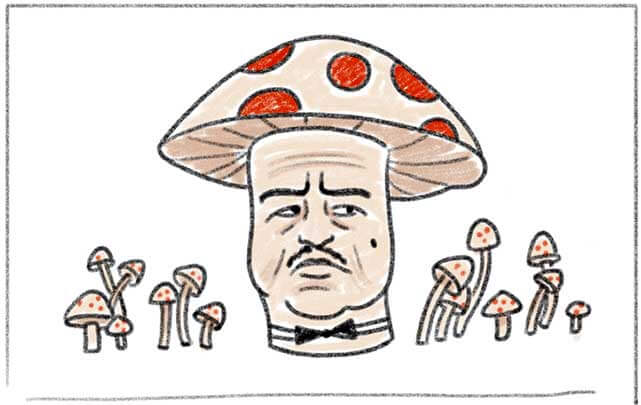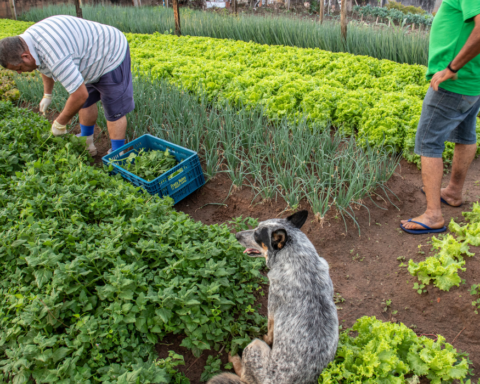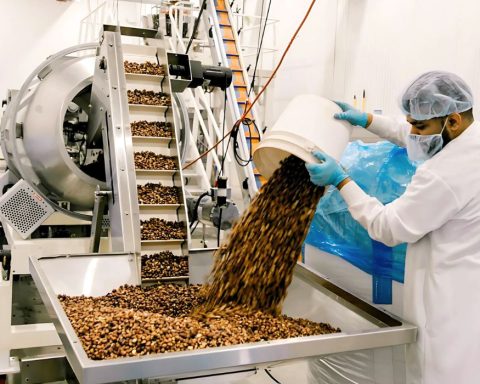Hero: Cargill
Cargill, one of the world’s largest food processing and commodities traders, announced plans in March to reduce the use of antibiotics at its four company-owned feedlots in Texas, Colorado and Kansas. An additional four feed yards operated by business partner Friona Industries will adopt these changes at the same time, impacting 1.2 million cattle annually. The goal is to eliminate 20 per cent of shared-class antibiotics, a category that covers medically important antibiotics used on both humans and animals. “We’ve listened to consumers and our customers, we’ve taken this first step, and we believe there are more steps coming in the not-too-distant future,” John Keating, president of Cargill’s beef business, said in a statement.
Due to a lack of vertical integration in the supply chain, the reductions by Cargill will only impact about 18 per cent of cattle processed domestically by the company. But the company is looking to increase the amount of beef certified for Beef Quality Assurance (BQA) at its packing plants from about 50 to 90 per cent by 2018. BQA is an industry-supported initiative that includes training on proper antibiotics use.
Public health advocates have become increasingly concerned about antibiotic resistance, which a large body of research has linked to the overuse of antibiotics on both animals and humans. The U.S. Centers for Disease Control and Prevention estimates that 23,000 Americans die every year due to antibiotic-resistant infections. Reducing the use of unnecessary antibiotics is seen as the most valuable tool in responding to this threat. Roughly 70-80 per cent of all medically important U.S. antibiotics is given to livestock to treat sickness, stave off infections and as what the industry describes as “growth promotion.” The industry has been criticized for overusing antibiotics to deal with problems that can often be addressed in alternative ways.
In 2013 the U.S. Food and Drug Administration issued voluntary guidelines on antibiotics use in farm animals, and California passed strict restrictions late last year. But the biggest pressure has been coming from the consumer side, with the success of companies like Chipotle that tout their sourcing of antibiotic-free meat. Fifty-four large investors with over $1 trillion under management launched a campaign in April calling for large restaurant groups to phase out the use of medically important antibiotics in their food chain.
Zero: Grupo Riberebro
Spanish vegetable processor Grupo Riberebro was fined €5.2 million ($5.9 million U.S.) in April for its participation in a canned mushroom cartel with three other companies. An investigation by the EU’s competition commissioner found that Riberebro conspired with competitors Lutece, Prochamp and Bonduelle in an attempt to stabilize prices and halt falling market share. These actions, which took place between September 2010 and February 2012, included an exchange of information regarding contracts, setting a price floor, assigning volume targets and splitting up customers among themselves. The cartel actions only pertained to canned mushrooms in jars and tins that were typically sold to retailers, as well as catering companies and other professional customers. “Access to food at competitive prices is essential for European consumers,” said EU competition commissioner Margrethe Vestager in a statement. “The cartel for canned mushrooms affected sales to retailers throughout Europe. Today’s decision once again shows the commission’s determination to sanction cartels and impose fines on all cartel participants.”
Riberebro received a 50 per cent reduction in its fine for cooperating fully with the investigation. Dutch processor Lutece obtained full immunity for first bringing the cartel to the EU’s attention, allowing it to avoid paying a €20.7 million fine. The other two companies, Prochamp and Bonduelle, were fined a combined €32 million. The leniency policies invoked were introduced in 2002 and updated in 2006 to try and incent more whistleblowers to go public.
Although the EU competition commissioner’s office has become best-known for its high-profile investigations into tax avoidance by multinational companies, it has also been active in pursuing anti-trust investigations involving the food industry, having broken up five food industry cartels over the past five years. Over €115 million in fines were given out by Vestager’s office last year to various companies involved in retail food packaging cartels.
Individual EU countries have also been more active in launching investigations of their own. The Netherlands Authority for Consumer and Markets unearthed a vinegar cartel in 2015 involving Dutch and German firms, while the German Federal Cartel Office in 2014 imposed nearly €340 million in fines to 21 producers for participating in a decades-long price-fixing cartel around sausage production in Germany dubbed the “Atlantic Circle.”







